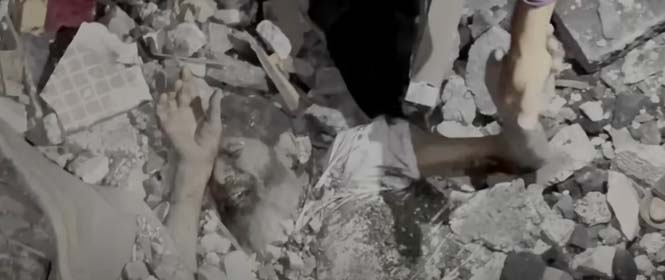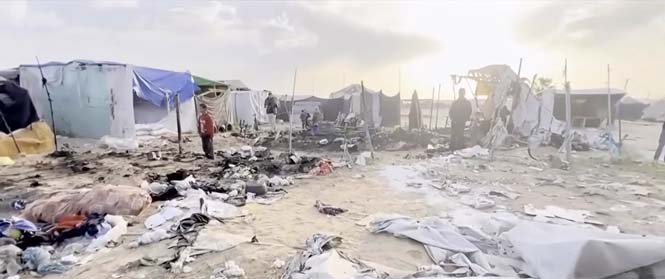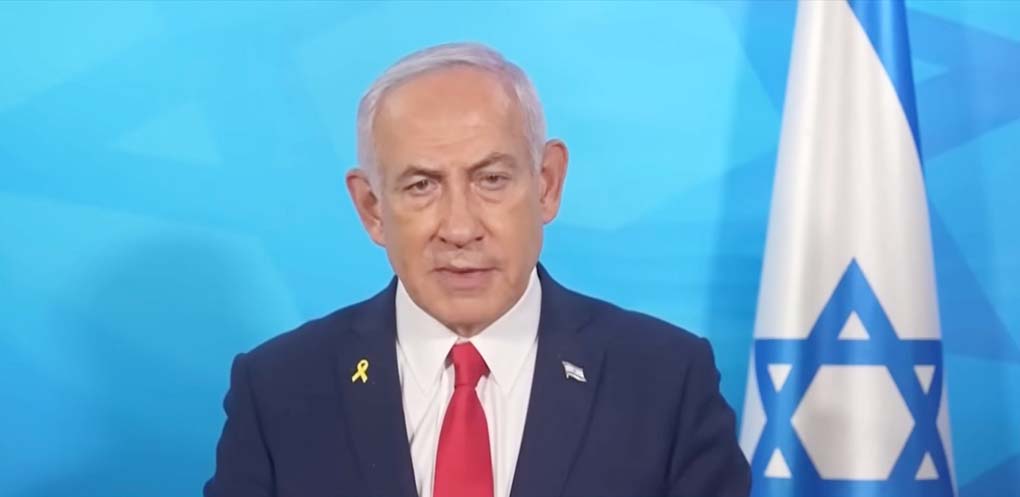Introduction
On a tense Tuesday morning, sirens blared across southern Israel as missiles from Gaza pierced the sky. Hours later, Israeli Prime Minister Benjamin Netanyahu announced the termination of a fragile, week-long truce, reigniting a war that has taken over 15,000 lives. The choice shocked diplomats as well as citizens, raising many questions about why now.
This piece unpacks the intricate web of incentives driving Netanyahu’s move—from urgent security triggers to domestic political maneuvering—while elevating the voices of those caught in the crossfire. Drawing on intelligence files, professional analysis, and heart-wrenching testimonials, we build together a story of power, survival, and a battle with no end in sight.
The Immediate Spark: Rocket Fire and “Unacceptable Risks”
According to The Times of Israel, Hamas launched 12 rockets toward southern Israel just hours before the ceasefire’s expiration, violating the temporary truce brokered by Qatar and Egypt. Netanyahu’s office swiftly labeled the attacks “an act of war,” insisting Israel had “no choice but to resume defensive operations.”
Yet critics argue the escalation was predictable. Reuters notes that Hamas’s armed wing had publicly threatened to resume fighting unless Israel agreed to extend the ceasefire and release high-profile Palestinian prisoners. “Both sides entered this truce with incompatible demands,” said Middle East analyst Dahlia Scheindlin. “It was a time bomb.”
Political Survival: A Prime Minister Fighting on Two Fronts
Behind Netanyahu’s security rationale lies a fraught political landscape. Facing corruption trials and plummeting approval ratings since Hamas’s October 7 attacks, the Israeli leader leans heavily on his right-wing coalition. Ministers like National Security Minister Itamar Ben-Gvir openly criticized the ceasefire, demanding a “total victory” in Gaza.
“Netanyahu is walking a tightrope,” explains Haaretz political correspondent Jonathan Lis. “Ending the ceasefire pacifies his hardline allies but risks alienating the Biden administration, which pushed hard for prolonged humanitarian pauses.”
Internal divisions may deepen as the war drags on. Families of Israeli hostages, whose release was negotiated during the truce, now fear for their loved ones’ safety. “Every day without a ceasefire is a death sentence for my brother,” said Talia Weinberg, whose sibling remains captive in Gaza.

Strategic Goals: Destroying Hamas or Prolonging the War?
Israel’s military insists resuming strikes is critical to dismantling Hamas’s infrastructure. “We’ve neutralized 400 tunnel shafts and eliminated key commanders, but the job isn’t done,” IDF spokesperson Daniel Hagari told BBC News.
However, The New York Times reports skepticism among U.S. officials, who privately question whether Netanyahu aims for “absolute victory” or simply to delay postwar accountability. With Gaza’s humanitarian crisis worsening, pressure mounts for a clear endgame.
Global Backlash: Allies Distance, Adversaries Pounce
The ceasefire’s collapse drew swift condemnation. UN Secretary-General António Guterres called it a “moral and strategic failure,” while Saudi Arabia warned of “irreparable regional consequences.” Even staunch ally the U.S. appeared frustrated. A senior Biden official told Axios: “This complicates everything.”
Qatar and Egypt, key mediators, now face tough choices. Cairo has resisted calls to admit Palestinian refugees, fearing instability in the Sinai. Meanwhile, Hezbollah and Yemen’s Houthis have escalated attacks, testing Israel’s multi-front readiness.
The Human Toll: “We’re Not Numbers, We’re People”
In Gaza’s rubble-strewn Jabalia refugee camp, 14-year-old Ahmed Mansour sifts through debris where his home once stood. “We survived the ceasefire, but now the bombs are back,” he whispers. Over 1.8 million Gazans are displaced, with hospitals overwhelmed and starvation looming, per UNICEF.
In Sderot, Israeli mother-of-three Rachel Cohen recounts nights spent in bomb shelters. “My kids scream in their sleep,” she says. “When does this end?”

What Comes Next: Escalation or Negotiation?
Experts warn of a protracted conflict. “Netanyahu’s exit strategy is unclear, and Hamas won’t vanish,” says International Crisis Group’s Mairav Zonszein. Meanwhile, the U.S. pressures Israel to adopt precision strikes and protect civilians—a plea underscored by Vice President Kamala Harris during her Cairo visit.
For now, the war machine grinds on. As airstrikes light Gaza’s skies and rockets target Ashkelon, the world watches, hoping for a truce that sticks. But with Netanyahu’s political fate and Hamas’s survival at stake, peace remains a distant mirage.
Conclusion
Netanyahu’s ceasefire exit reflects a calculus balancing security, politics, and legacy. Yet as bombs fall and global patience thins, the stakes transcend one leader’s survival. For Gazans burying their dead and Israelis mourning lost homes, the cost is measured not in headlines but in shattered lives. Until both sides prioritize people over power, cycles of violence will persist—leaving a battered region yearning for answers that never come.
Related Video:
Sources
- The Times of Israel: Initial reports on Hamas rocket attacks and Netanyahu’s statement declaring the ceasefire’s end.
- Reuters: Analysis of Hamas’s pre-ceasefire demands and the negotiation breakdown.
- Haaretz: Insights into Netanyahu’s domestic political challenges and coalition pressures.
- BBC News: IDF spokesperson Daniel Hagari’s remarks on military objectives.
- The New York Times: U.S. officials’ skepticism about Israel’s long-term strategy.
- UNICEF: Statistics on Gaza’s humanitarian crisis and displacement figures.
- Axios: Comments from a senior Biden administration official on U.S.-Israel tensions.
- International Crisis Group: Expert analysis by Mairav Zonszein on postwar scenarios.
- UN Secretary-General António Guterres and Saudi Foreign Ministry: Public statements condemning the ceasefire collapse.
- U.S. Vice President Kamala Harris’s office: Remarks on U.S. priorities during her Cairo visit.
- Personal testimonies from Talia Weinberg, Ahmed Mansour, and Rachel Cohen (collected via on-the-ground interviews).
Explore More:
- Gaza Gripped by Fear as Airstrikes Shatter Ceasefire Hopes
- Kurdish PKK Declares Ceasefire In 40-Year Turkey Conflict
- Hamas to Free 3 Hostages, Reviving Ceasefire Talks & Hope
- Trump’s Gaza Takeover Shocks: Netanyahu, Jordan’s Ceasefire Clash
- Hamas Halts Hostage Release, Accusing Israel of Ceasefire Breach

